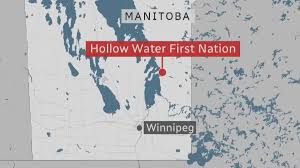
Introduction
The Hollow Water Incident is a significant event in Canada’s history, marking a moment of tragedy and awakening within Indigenous communities. This incident not only emphasizes the complexities of historical injustices faced by Indigenous Peoples but also underlines the continued need for reconciliation and understanding in contemporary society. As awareness around such incidents grows, it’s important for Canadians to understand their implications on current social dynamics and healing processes.
The Hollow Water Incident Explained
In the early 1980s, a small community in Manitoba, known as Hollow Water, became embroiled in a heartbreaking tale of sexual abuse that would go on to define a generation’s struggle. The community found itself at the center of a crisis when numerous individuals came forward with allegations of abuse, a painful revelation that pointed to a larger systemic issue affecting Indigenous Peoples across Canada. The incident led to the involvement of various authorities and raised critical discussions surrounding the treatment of victims and the accountability of perpetrators.
As news spread, it became clear that the Hollow Water incident was not just an isolated case. It signaled the prevalence of abuse within First Nations communities, many of which had not only experienced historical traumas but were also grappling with the aftermath of colonial policies that uprooted traditional ways of life.
Impact on Community and Healing
The aftermath of the Hollow Water Incident saw the community come together to confront their pain and pave the way for healing. A notable initiative was the establishment of the Hollow Water First Nation’s Community-based Safety Program. This program was designed to restore trust, prioritize healing, and empower individuals through community-led initiatives. The model has been recognized as a pioneering approach, integrating cultural practices with modern therapeutic methods to ensure safety and justice for survivors.
Moreover, this incident has prompted dialogues among policymakers, social workers, and advocates to address the systemic failures that have led to such tragedies. The need for comprehensive support systems and safety nets remains paramount, especially in remote Indigenous communities that often grapple with limited resources.
Conclusion
The Hollow Water Incident may have occurred decades ago, but its impact is still felt today. As Canada continues on its path toward reconciliation, stories like this remind us of the urgent work needed to address the underlying issues within Indigenous communities. Building awareness about the struggles faced by survivors and advocating for systemic changes are essential steps in ensuring that such incidents are recognized and not repeated. Canada’s journey toward healing is an ongoing process, and fostering understanding is key in creating a just and inclusive future for everyone.



